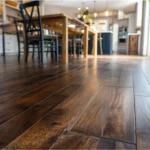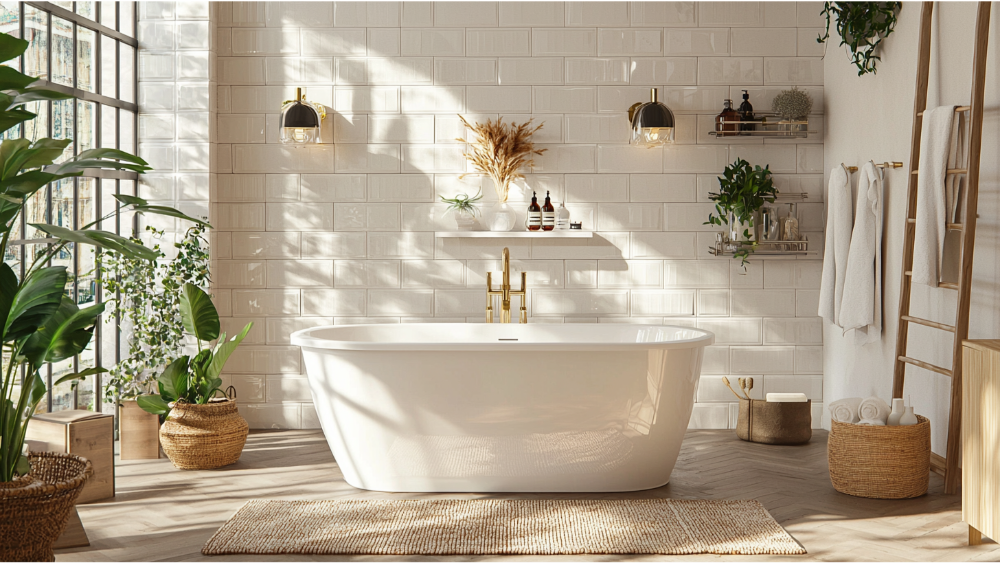
Dealing with smelly bathroom drains can be an unpleasant experience, but fortunately, it’s a common problem with straightforward solutions. Odors from drains often result from a buildup of bacteria, mold, or trapped debris, and tackling the issue early can help prevent more significant plumbing problems. With a few simple steps, you can eliminate the bad smell and keep your bathroom fresh and clean.
6 Ways to Get Rid of Smelly Drains in Your Bathroom
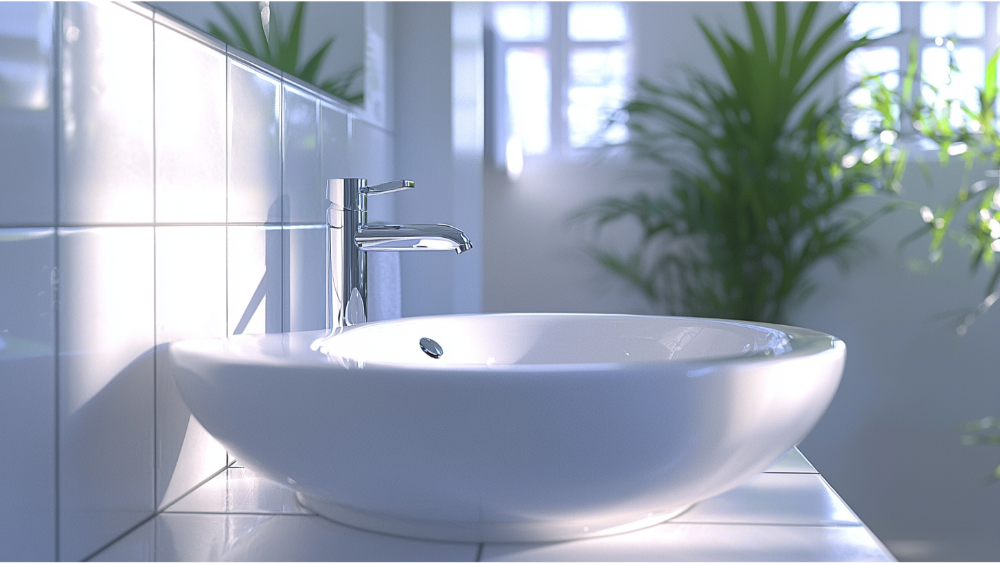
1 | Use Baking Soda and Vinegar
Start by pouring a cup of baking soda directly into the drain. Following this, slowly pour in a cup of white vinegar, allowing the mixture to fizz and break down residues causing unpleasant smells. After letting it sit for 15-20 minutes, flush the sink drain with boiling water to wash away the loosened debris and bacteria. This method is highly effective in neutralizing drain odors caused by organic buildup.
2 | Flush with Boiling Water
Regularly boiling a kettle of water and pouring it down the drain can dissolve minor blockages and remove unpleasant smells. The heat helps to break down greasy residues that might be clinging to the pipe walls. This simple yet effective step prevents the buildup of bacteria, which often contributes to persistent drain smells.
3 | Clean the Drain Trap
For persistent drain odors, it might be necessary to disassemble and clean the drain trap. This U-shaped pipe can accumulate debris such as hair, soap scum, and grease over time. By thoroughly washing the trap with warm, soapy water, you can eliminate the sources of the foul smell and restore proper water flow.
4 | Use a Drain Cleaning Solution
Opt for a store-bought or DIY drain cleaning solution to tackle tough odors. Products containing enzymes are particularly effective at breaking down organic buildup responsible for the unpleasant smell. If you prefer a natural approach, mixing baking soda with salt and rinsing it out with boiling water can also eliminate stubborn drain odors.
5 | Prevent Future Smells
To keep drain smells at bay, establish a routine of regular maintenance. Flushing the sink drain with boiling water weekly and using a baking soda rinse monthly can prevent debris and bacteria buildup. Avoid pouring grease or food scraps down drains, as these can quickly lead to clogs and odors.
6 | When to Call a Professional
If persistent smells linger despite your best efforts, it may be time to call in a professional plumber. Deep-seated clogs, damaged pipes, or issues with your home’s plumbing system can cause odors that require expert intervention. A professional can diagnose and resolve these problems, ensuring your drains stay odor-free and functioning properly.
Common Causes of Smelly Drains
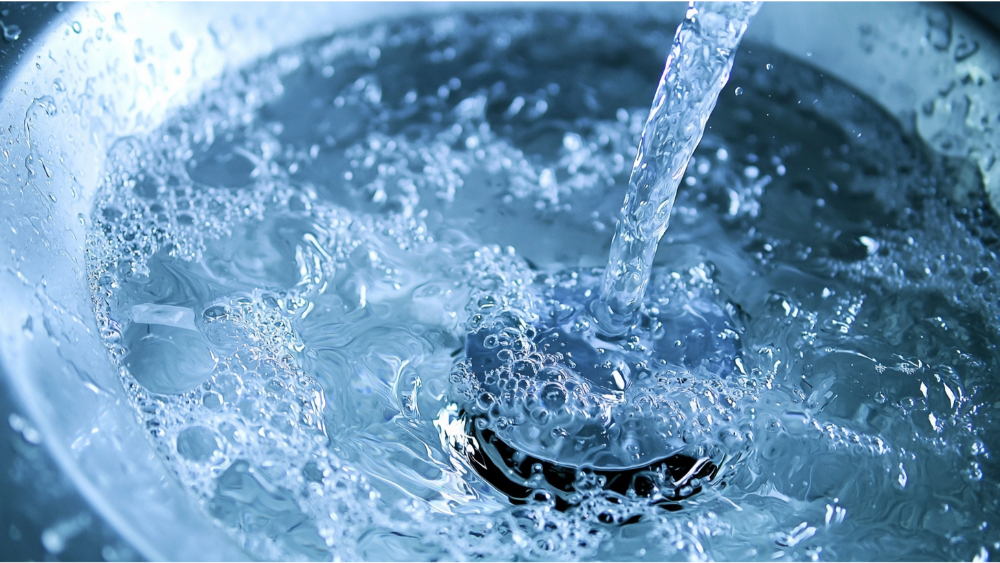
Accumulated Food Particles in the Kitchen Sink Drain
Over time, food particles can become trapped in your kitchen sink drain, leading to unpleasant odors. Leftover scraps, grease, and oil can decompose inside the pipes, creating a breeding ground for bacteria. Running hot water down the drain regularly can help loosen and flush out these particles, but severe buildups may require thorough cleaning or the use of a specialized drain cleaner.
Sewer Gases Escaping into Your Home
If your plumbing system’s P-traps or vents are not functioning properly, sewer gases can escape through your drains, causing strong, foul smells. This issue often happens when P-traps dry out, especially in infrequently used drains. Pouring water into rarely used sinks or drains can help reseal the trap, blocking sewer gases from entering.
Buildup in the Bathroom Sink or Shower Drain
Hair, soap scum, and other debris often accumulate in bathroom sinks and shower drains, leading to clogs and unpleasant smells. This buildup traps water and creates the perfect environment for bacteria to grow. Regularly cleaning these drains and using a drain hair catcher can prevent these odors from developing.
Hot Water Mixing with Grease or Oil Residue
When grease or oil is washed down the drain and mixed with hot water, it can stick to the pipe walls and harden over time as it cools. This residue can trap food particles, causing foul smells to emanate from the drain. Avoid pouring grease or oily substances down the drain, and instead dispose of them in a sealed container.
Clogs or Blockages in the Main Line
If multiple drains in your home emit smells, the issue might be with a clog in the main sewer line. When this happens, waste and water can back up, emitting strong odors throughout the house. A professional plumber may be needed to inspect and clear the main line to resolve the problem effectively.
Preventive Measures to Avoid Smelly Drains

Proper Use of Garbage Disposal
Avoid overloading your garbage disposal with large amounts of food waste, as this can lead to clogs and trapped debris, causing unpleasant odors. Always run cold water while using the disposal to help flush the waste down the drain pipe properly. Regularly clean your garbage disposal by grinding ice cubes and citrus peels to remove trapped particles and freshen the smell.
Minimize Hair and Soap Scum Buildup
Install drain covers in your bathtub drain and sink pipes to catch hair before it goes down the drain and causes blockages. Similarly, avoid excessive use of heavy soaps and oily products, as these can solidify and form scum inside the drain pipes. Clean drain covers and the surrounding area frequently to minimize buildup over time.
Maintain Your Kitchen Drain
Dispose of grease and cooking oil in a sealed container rather than pouring them down the kitchen drain, as they can solidify and cause clogs. Scrape food particles off plates into the trash before rinsing them to prevent debris from accumulating in the pipes. Periodically flush your kitchen drain with hot water and a mixture of baking soda and vinegar to break down residue and keep odors at bay.
Regularly Inspect Sink Pipes and Drains
Check under your sink for any leaks or damages in the pipes, as lingering moisture can create a breeding ground for bacteria and odors. Tighten any loose fittings and clean around the pipes to maintain hygiene. For extra precaution, rinse your sink with a mild bleach solution occasionally to eliminate hidden bacteria buildup.
Flush Bathroom Drains Routinely
Run hot water down your bathroom drains, such as the bathtub drain, at least once a week to clear out soap residue and prevent odors. Avoid flushing non-flushable items like wipes or large toiletries down sink pipes or toilets that could block the main line. For deep cleaning, consider using a safe enzymatic drain cleaner that specifically targets organic materials like hair and soap scum.
When to Call a Plumber
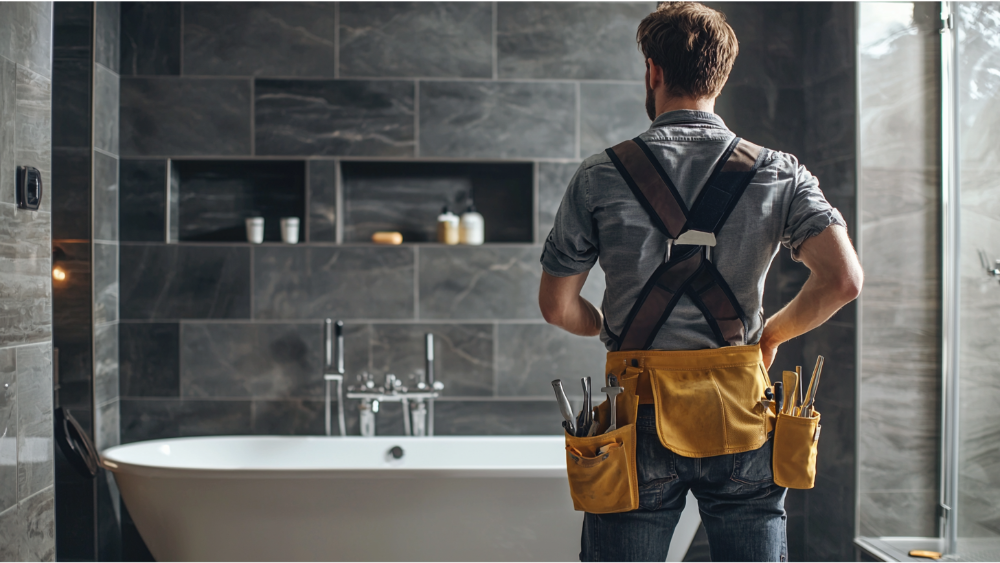
Persistent Sewer Smell
If you notice a strong sewer smell in your home that doesn’t go away despite regular cleaning, it’s time to call a plumber. This could indicate a problem with your drain maintenance or a damaged sewer line that requires professional inspection.
Standing Water in Drains
When water drains exceptionally slowly or pools in your sink, shower, or bathtub, it may be caused by a significant blockage. A plumber can thoroughly clean the pipes and prevent further issues like smelly sink odors.
Unusual Noises or Gurgling
Strange gurgling sounds coming from your pipes often signal trapped air due to a blockage or partial drain clog. These noises are signs that your drain maintenance may need professional attention to restore smooth water flow.
Odors from an Unused Drain
Smells emanating from unused drains, such as those in a guest bathroom or rarely-used laundry room, could result from dried-out traps or deeper plumbing issues. A plumber can help identify and fix the problem to eliminate odors and prevent damage.
Recurrent Clogs Despite DIY Efforts
If clogs frequently return despite your attempts to clear them, there may be a more serious issue in the plumbing system. A professional plumber can properly diagnose and resolve the problem to ensure long-term relief.
Frequently Asked How To Get Rid Of Smelly Drains In Bathroom Questions
What can I put down my bathroom drain to stop it from smelling?
Baking soda and white vinegar are excellent natural solutions to combat smelly bathroom drains. Pour half a cup of baking soda down the drain, followed by half a cup of vinegar, and allow it to sit for 15 minutes before flushing with hot water. Using a commercial drain cleaner specifically designed to remove odors can also be effective.
Why does my bathroom sink drain smell bad?
A smelly bathroom sink drain is often caused by a buildup of debris, such as hair, soap scum, and other organic matter, which can produce foul odors over time. Stagnant water or a dry P-trap may allow sewer gases to escape into the bathroom. Ensuring regular cleaning and proper drainage can help prevent these unpleasant smells.
What is the best bathroom odor eliminator?
The best bathroom odor eliminator often combines powerful deodorizing properties with natural, pleasant scents. Activated charcoal air purifiers and gel-based odor absorbers are highly effective at neutralizing smells rather than masking them. Essential oil diffusers can provide a clean and refreshing fragrance to the bathroom. Regular use of enzymatic cleaners for drains and surfaces can also prevent unpleasant odors from developing.
Conclusion
Eliminating bathroom odors is essential for maintaining a fresh and inviting space. By using effective products like activated charcoal purifiers, enzymatic cleaners, and essential oil diffusers, you can neutralize unpleasant smells while introducing calming, natural scents. A combination of regular cleaning and the right odor-eliminating solutions ensures a hygienic and pleasant environment for everyone.
CONTACT US
Our Services
Areas We Serve
Certificate



